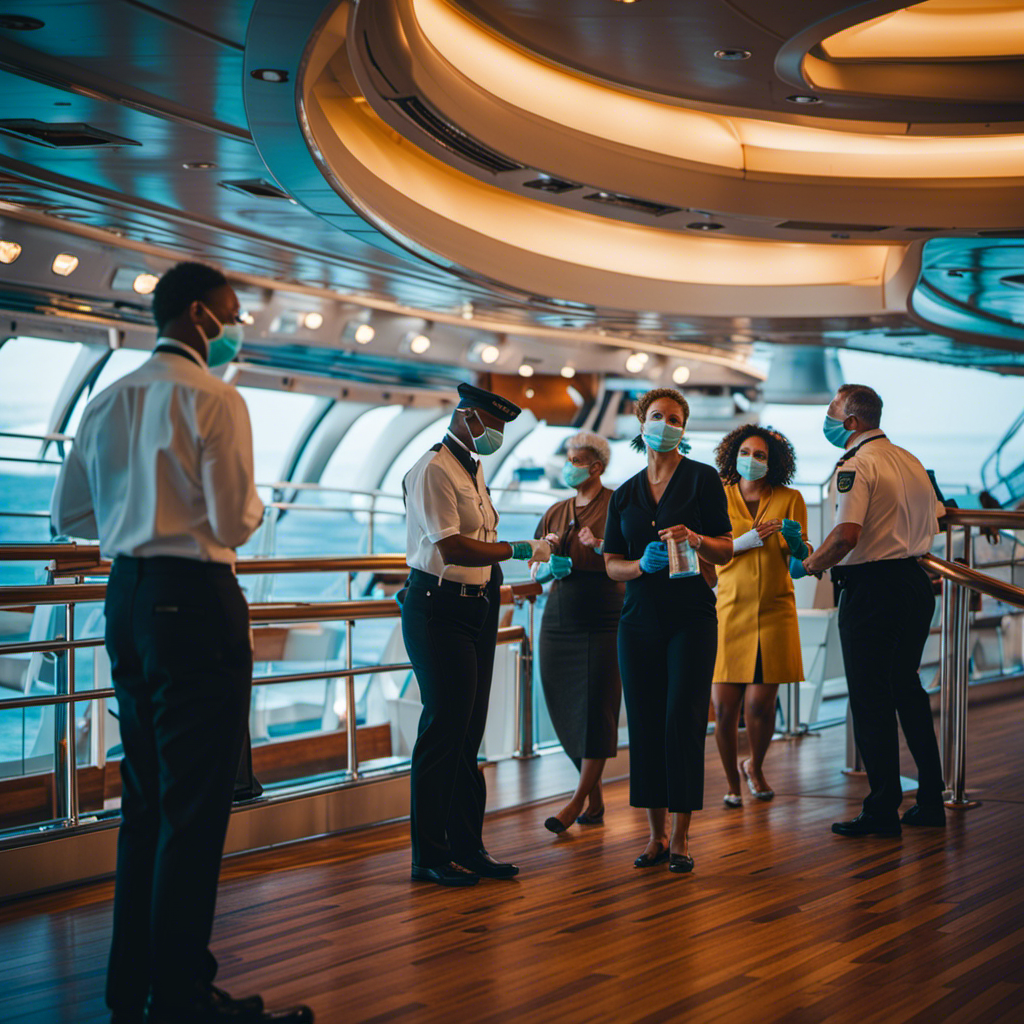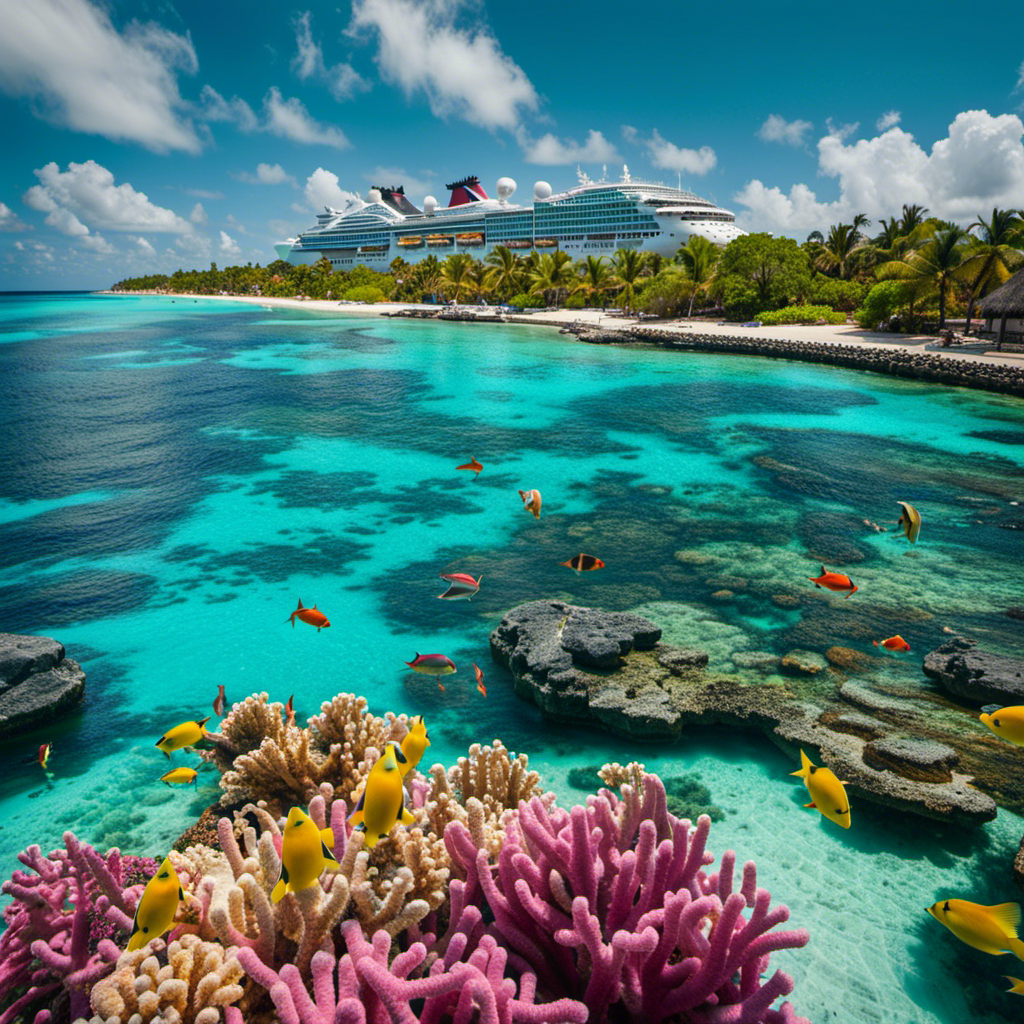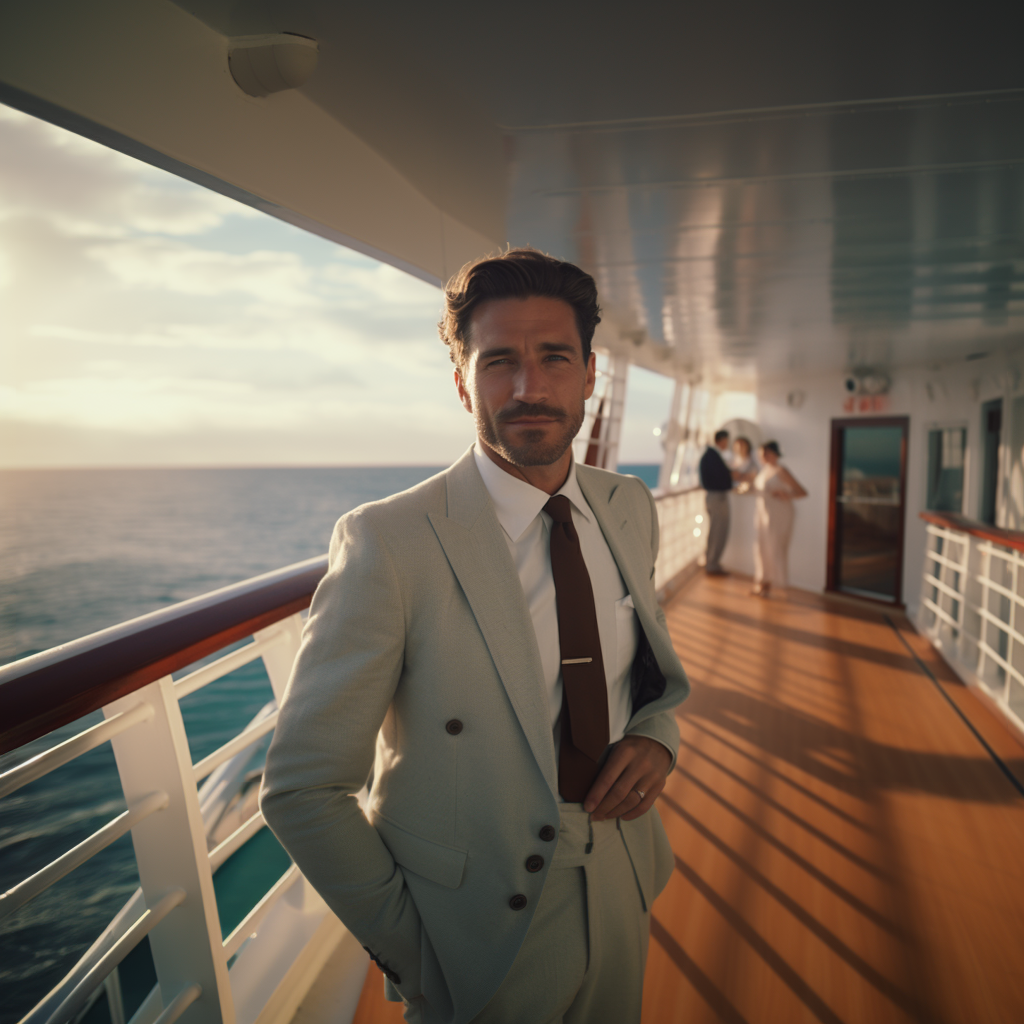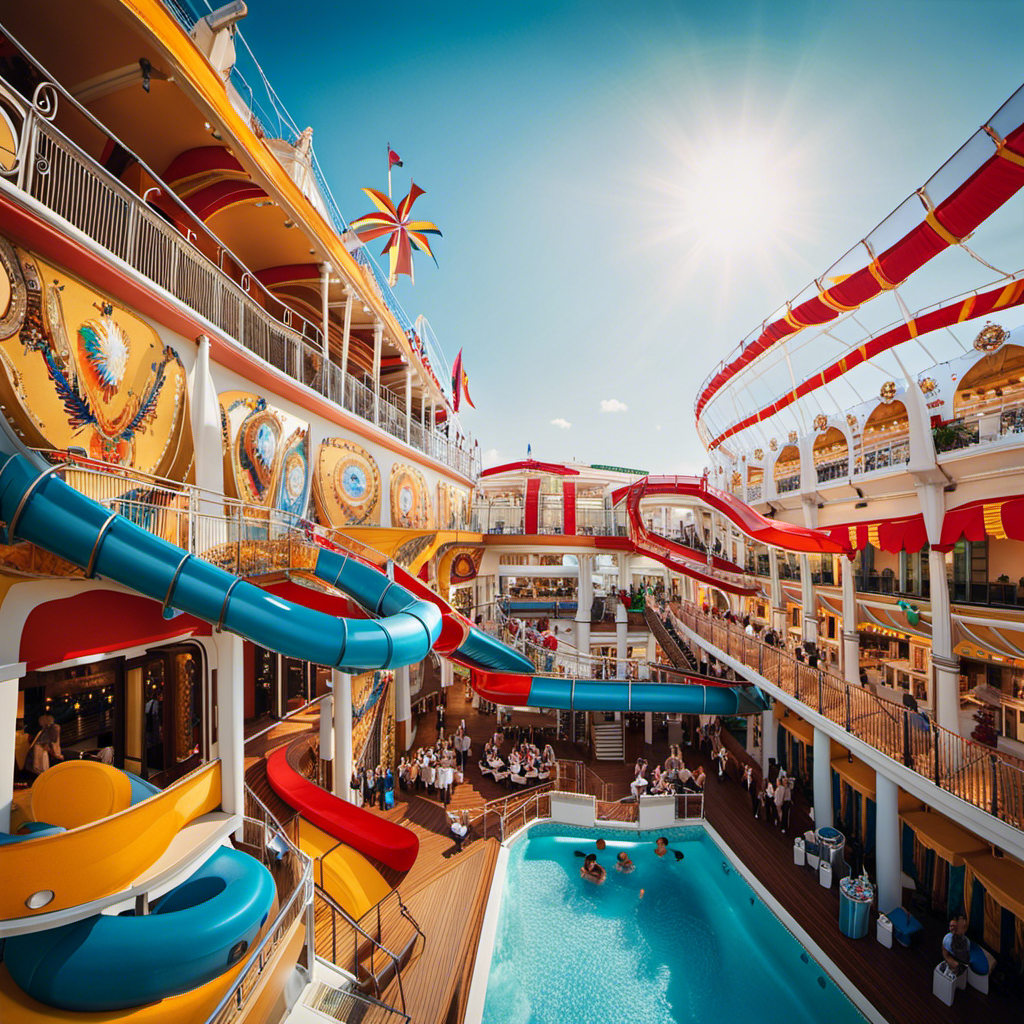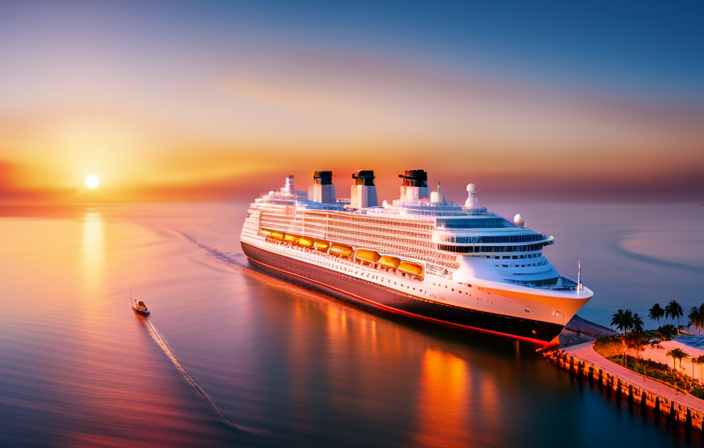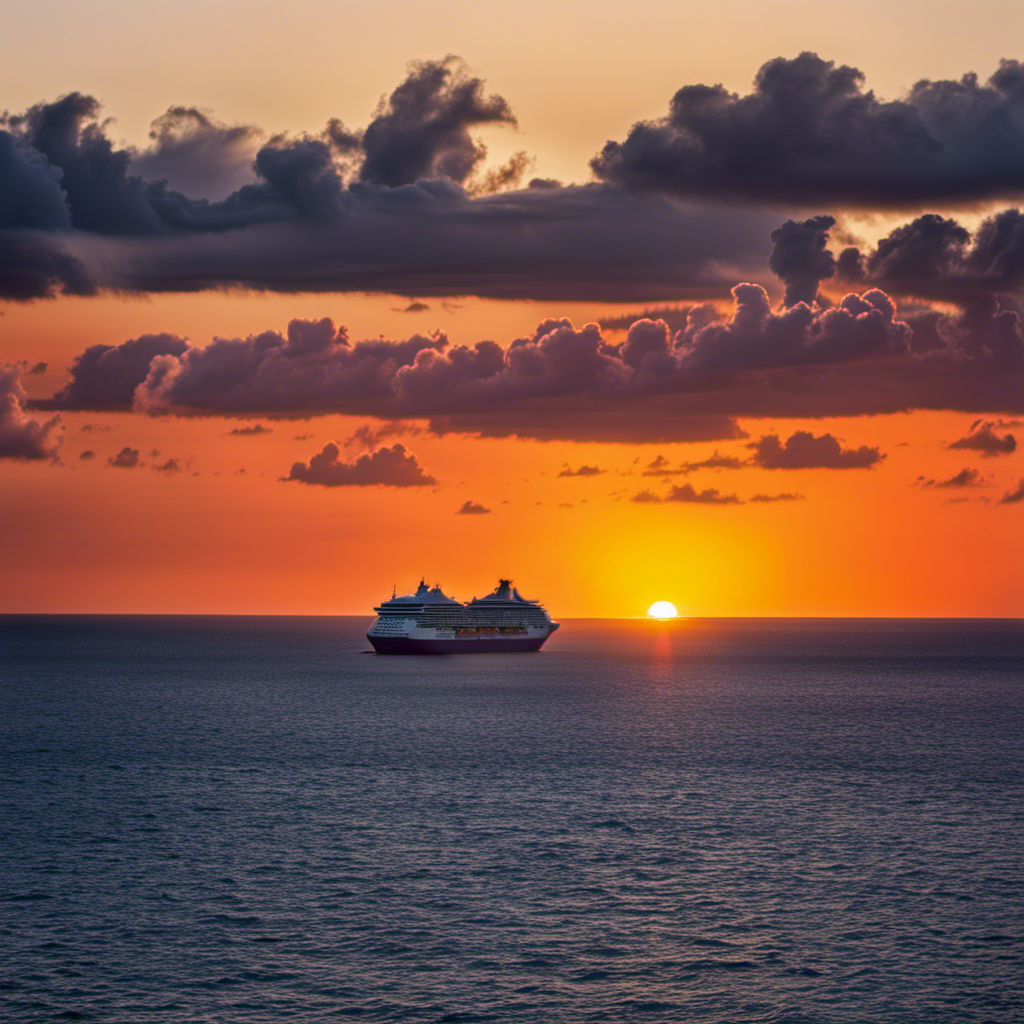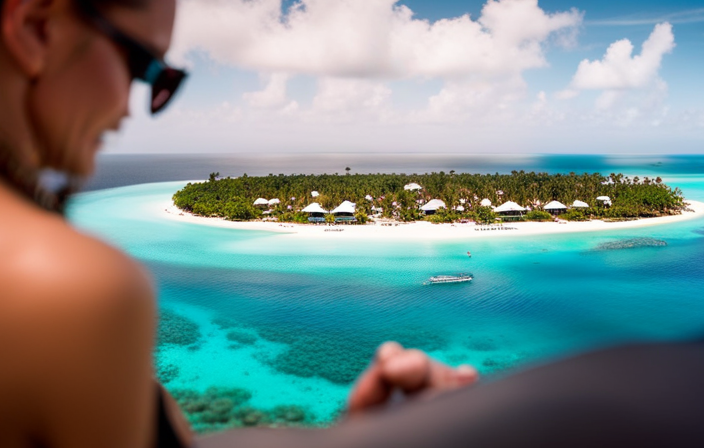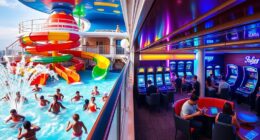As someone who frequently goes on cruises, I recognize the significance of maintaining health and safety protocols during the current spread of the Omicron variant. Cruise companies have taken proactive steps to safeguard both the passengers and the crew. These steps encompass more frequent testing, better air ventilation systems, stricter cleaning routines, mandatory mask usage, and vaccination mandates.
Norwegian Cruise Line, for instance, conducts testing at the terminal and enforces mask usage in indoor areas. These protocols go above and beyond what is typically seen in other group settings. Despite the CDC’s voluntary guidelines for the cruise industry, Norwegian Cruise Line Holdings has decided to continue following the more stringent Conditional Sailing Order (CSO) protocols.
The outbreak has undoubtedly impacted the industry, resulting in cancellations and decreased bookings. To accommodate passengers, cruise lines have implemented flexible cancellation policies. However, challenges lie ahead as the industry navigates uncertain recovery, potential long-term changes in cruising habits, and the need for new technologies to enhance health and safety measures.
Key Takeaways
- Cruise lines have implemented extensive health and safety protocols, including increased testing, improved ventilation, enhanced sanitation, and vaccine requirements.
- The CDC’s Conditional Sailing Order (CSO) became voluntary for all U.S. ports, but many cruise lines, like Norwegian Cruise Line Holdings, are choosing to continue following the protocols outlined in the CSO.
- The cruise industry has experienced significant cancellations and financial impact due to the Omicron outbreak, with a decrease in bookings and passenger numbers.
- Cruise lines have adopted more lenient cancellation policies, allowing passengers to cancel up to 48 hours before a cruise with no penalty and offering credit for voyages if passengers test positive prior to sailing.
Testing Protocols and Frequency
I appreciate that cruise lines are administering nearly 10 million tests per week, which is 21 times the testing rate in the United States, as part of their health and safety protocols during the omicron outbreak. This high testing frequency is crucial in detecting and isolating potential cases of COVID-19 onboard.
The effectiveness of these testing protocols is evident in the low number of reported cases on cruises compared to other group settings.
However, implementing such a large-scale testing operation does come with its challenges. Cruise lines must ensure the availability of testing supplies, the efficiency of testing processes, and the timely delivery of test results. Additionally, managing a high volume of tests requires a well-coordinated system and a dedicated team of healthcare professionals.
Despite these implementation challenges, the rigorous testing measures contribute significantly to the overall safety and well-being of passengers and crew members during the omicron outbreak.
Enhanced Sanitation and Cleaning Procedures
Passengers can expect increased sanitation and enhanced cleaning procedures onboard cruise ships to ensure a safe and clean environment. Cruise lines have implemented rigorous protocols to combat the spread of COVID-19, including enhanced cleaning procedures and improved ventilation systems.
The cleaning procedures involve thorough disinfection of high-touch surfaces, such as handrails, elevator buttons, and public areas. Additionally, cruise ships have improved ventilation systems to promote better air circulation and filtration, reducing the risk of airborne transmission.
These measures are crucial in maintaining a healthy onboard environment and reducing the potential for virus transmission. By prioritizing enhanced cleaning procedures and improved ventilation, cruise lines are taking proactive steps to ensure the safety and well-being of their passengers.
Vaccination Requirements for Passengers and Crew
To ensure a safe environment, all crew members and passengers are required to be vaccinated before boarding the ship. This mandatory vaccination policy is implemented to minimize the risk of COVID-19 transmission onboard and protect the health of everyone involved.
The crew vaccination requirements are in line with the recommendations of health authorities and regulatory bodies, such as the CDC. Here are three key points regarding the vaccination requirements:
-
Strict enforcement: Cruise lines have implemented strict policies to ensure that all crew members receive the required vaccinations. This includes verifying vaccination records and conducting regular checks to ensure compliance.
-
Health and safety considerations: The vaccination requirements are essential for maintaining a healthy and safe environment onboard. Vaccinated crew members are less likely to contract or spread the virus, reducing the risk for both the crew and passengers.
-
Compliance with regulations: Cruise lines adhere to the regulations set by authorities, such as the CDC, regarding crew vaccination requirements. This compliance helps to maintain the integrity of the industry and ensure that all necessary precautions are taken to protect public health.
Social Distancing Measures in Public Areas
Maintaining a safe environment, social distancing is implemented in public areas of the ship to minimize close contact and reduce the risk of COVID-19 transmission. Social distancing enforcement is a crucial aspect of the health and safety measures onboard cruise ships.
This includes limiting the number of passengers in common areas, such as dining venues, theaters, and lounges, to ensure adequate spacing between individuals. The impact of social distancing measures on onboard entertainment is significant. While cruise lines strive to provide a variety of entertainment options, including live performances and interactive activities, the capacity and availability of these experiences may be limited to comply with social distancing guidelines.
This may result in reduced seating capacity, spaced-out seating arrangements, and modified entertainment schedules to accommodate social distancing requirements. Despite these adjustments, cruise lines continue to prioritize the safety and well-being of their passengers by implementing and enforcing social distancing measures throughout the ship.
Face Mask Policies and Requirements
Wearing face masks is an essential requirement for all individuals in certain areas of the ship to ensure the safety and well-being of everyone onboard. Face masks have proven to be effective in reducing the spread of respiratory droplets, which is crucial in preventing the transmission of COVID-19.
Cruise lines enforce strict face mask policies to ensure compliance among passengers and crew members. These policies are enforced through regular announcements, signage, and the presence of staff members who actively remind individuals to wear their masks properly.
Face mask effectiveness is further enhanced by the implementation of other health and safety measures, such as improved ventilation and increased sanitation.
Compliance With Cdc’s Conditional Sailing Order
I actively comply with the CDC’s Conditional Sailing Order to ensure the well-being of everyone onboard the ship. Compliance with the CSO is crucial in maintaining a safe and healthy environment for passengers and crew members.
Here are some key points regarding CDC’s CSO compliance and the classification of gray status ships:
-
CDC’s CSO compliance:
-
Cruise lines continue to follow the protocols outlined in the CSO.
-
These protocols include mandatory COVID-19 testing before boarding, enhanced cleaning and sanitization measures, social distancing in public areas, and vaccination mandates for passengers and crew members.
-
The CDC remains the regulator of the cruise industry in the U.S.
-
Gray status ships:
-
Ships that choose not to participate in the voluntary CSO protocols are labeled as gray status in the CDC’s daily color status report.
-
Gray status indicates that the ship is not actively complying with the CSO requirements.
-
It is important for passengers to be aware of the compliance status of the ship they are planning to sail on to make informed decisions about their safety.
Impact of Omicron Outbreak on Cruise Industry
The recent surge in cases has had a significant impact on the cruise industry. This has led to cancellations and a decrease in bookings. The impact on bookings has been substantial. Potential passengers are wary of traveling amidst the Omicron outbreak. This decline in bookings has resulted in financial implications for cruise companies. They are experiencing reduced revenue and potential losses. The cancellations of sailings have further added to the financial burden. Cruise lines have to refund passengers and manage the operational costs associated with canceled voyages.
The cruise industry relies heavily on passenger numbers to sustain its operations. The decrease in bookings has created challenges for the industry’s recovery. As the Omicron outbreak continues, the cruise industry will need to adapt its strategies. This is necessary to regain passenger confidence and mitigate the financial impacts of the ongoing crisis.
Lenient Cancellation Policies for Passengers
During the pandemic, cancellation policies have become more flexible, allowing passengers to cancel their cruises up to 48 hours before departure without facing penalties. This increased cancellation flexibility is aimed at providing passengers with assurance and peace of mind amidst the uncertainties brought about by the ongoing Omicron outbreak.
Here are four key points to consider regarding the lenient cancellation policies implemented by cruise lines:
-
Passenger convenience: The 48-hour cancellation window gives passengers more time to assess their travel plans and make informed decisions regarding their cruise bookings.
-
Reduced financial risk: With no penalties for canceling within the specified timeframe, passengers can avoid incurring additional costs in case of unexpected circumstances or health concerns.
-
Health and safety considerations: The lenient cancellation policies align with the cruise industry’s commitment to prioritizing the well-being of passengers, as it allows individuals who may test positive for COVID-19 before the trip to reschedule or cancel without penalties.
-
Increased customer satisfaction: By offering cancellation flexibility, cruise lines are demonstrating their commitment to customer satisfaction and understanding the unique challenges passengers may face during these uncertain times.
Future Challenges and Outlook for Cruise Lines
Navigating the uncertainties of the pandemic and its impact on the cruise industry presents significant challenges for the future. Cruise lines are facing the task of making data-driven decisions to ensure the safety and recovery of their operations. Analyzing the recovery timeline is crucial for the industry to plan and adapt accordingly.
To illustrate the importance of data-driven decision making and the recovery timeline, let’s examine the following table:
| Challenges | Data-Driven Decision Making |
|---|---|
| Uncertainty surrounding the recovery | Analyzing COVID-19 trends and vaccination rates to determine when it is safe to resume operations |
| Potential long-term changes in cruising habits | Conducting market research to understand customer preferences and adapt offerings |
| Development of new technologies | Exploring innovations in health and safety measures to enhance passenger confidence |
| Collaboration with health authorities | Working closely with experts to implement effective protocols and respond to future outbreaks |
| Gradual return to pre-pandemic operations | Monitoring passenger numbers and adjusting capacity based on demand and health considerations |
Collaboration for Future Outbreak Preparedness
As we look ahead, it is crucial to collaborate with health authorities to ensure preparedness for future outbreaks. This collaboration is essential in developing effective strategies and protocols to combat the spread of infectious diseases on cruise ships. It allows for the sharing of knowledge, expertise, and resources to enhance health and safety measures.
In order to achieve outbreak preparedness, the following actions should be taken:
- Conduct regular meetings and communication between cruise lines and health authorities to exchange information on emerging infectious diseases and best practices.
- Collaborate on the development and implementation of comprehensive health screening procedures for passengers and crew members before boarding.
- Work together to establish protocols for responding to potential outbreaks onboard, including isolation and quarantine measures.
Frequently Asked Questions
Are There Any Specific Protocols in Place for Testing Crew Members on Cruise Ships?
Yes, there are specific protocols in place for testing crew members on cruise ships. These protocols include regular testing for COVID-19 and vaccination requirements for all crew members to ensure the health and safety of everyone on board.
What Measures Are Cruise Lines Taking to Ensure Enhanced Sanitation and Cleaning Procedures Onboard?
Enhanced cleaning and sanitation procedures onboard cruise ships include rigorous protocols to ensure a safe environment. Crew members undergo regular testing, and cleaning measures are increased to maintain cleanliness and prevent the spread of germs.
Are There Any Exemptions to the Vaccination Requirements for Passengers and Crew on Cruise Ships?
There are limited exemptions to vaccination requirements on cruise ships, including medical exemptions. However, these exemptions are rare and cruise lines prioritize the health and safety of passengers and crew by implementing strict vaccination mandates.
How Are Social Distancing Measures Being Implemented in Public Areas and Dining Venues on Cruise Ships?
Social distancing measures in public areas and dining venues on cruise ships present challenges. Despite efforts, effectiveness may vary. Compliance and enforcement are crucial for maintaining safety. Continuous evaluation and adaptation are necessary for optimal implementation.
Are Face Masks Required for All Passengers on Board or Only in Certain Areas of the Ship?
Face masks are required for all passengers on board cruise ships. This is part of the cruise lines’ health and safety measures. Additionally, the ships have improved ventilation systems to promote a safer environment for everyone.
Alfons is the visionary leader and driving force behind Voyager Info’s success. As the Editor in Chief, he brings a wealth of experience and an unwavering passion for travel to the helm of our cruise-centric platform.
With a lifelong fascination for exploring new horizons, Alfons discovered his love for the ocean and cruising at a young age. From sailing across pristine Caribbean waters to embarking on daring expeditions to far-flung destinations, he has amassed a treasure trove of first-hand experiences in the world of cruising.

